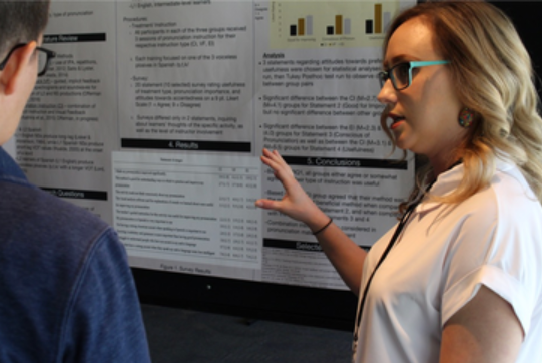Research

Current Research Projects
Research at the Purdue Bilingualism Lab focuses on a variety of aspects of bilingualism, broadly defined. Here you will find just a sample of the ongoing research projects in the lab.
Methodologies in Bilingualism Research
Three ongoing projects directly address current methodologies in bilingualism research, seeking to improve current approaches and build consensus and comparability in the field:
- Development and assessment of a self-reporting tool for quantifying a bilingual's experience and engagement with code-switching: The Bilingual Code-Switching Profile (BCSP).
- A large-scale narrative analysis of trends in how proficiency and code-switching experience are currently measured in the field of bilingualism.
- An analysis of the reliability of specific assessment tools in the field.
Acquisition of L2 Phonetics and Phonology
Several projects at the Purdue Bilingualism Lab examine the acquisition and development of second phonetics. In these projects, we:
- Investigate the nature of, and limits on, the acquisition of L2 sub-phonemic features (e.g., voice onset time).
- Consider the suitability of speech visualization for teaching L2 pronunciation (e.g., lexical tone).
- Empirically test the efficacy of different types of pedagogical approaches (implicit and explicit visual feedback, native speaker feedback) for phonetic instruction.
Cross-linguistic Phonetic Interference
While bilinguals are generally adept at separating two phonetic systems, a number of different factors (e.g., code-switching, bilingual language mode, linguistic environment) may result in the dual activation of both phonetic systems. This simultaneous, or near-simultaneous activation of both systems can be seen through momentary (or transient) cross-linguistic interference, in which phonetic production in one language shifts in the direction of the opposite language. Within this line of work, we are investigating:
- What are the factors or contexts that result in cross-linguistic phonetic interference?
- What are the limits of cross-linguistic phonetic interference?
- How do language dominance, code-switching experience, and specific phonetic characteristics all impact the overt expression of cross-linguistic phonetic interference?
